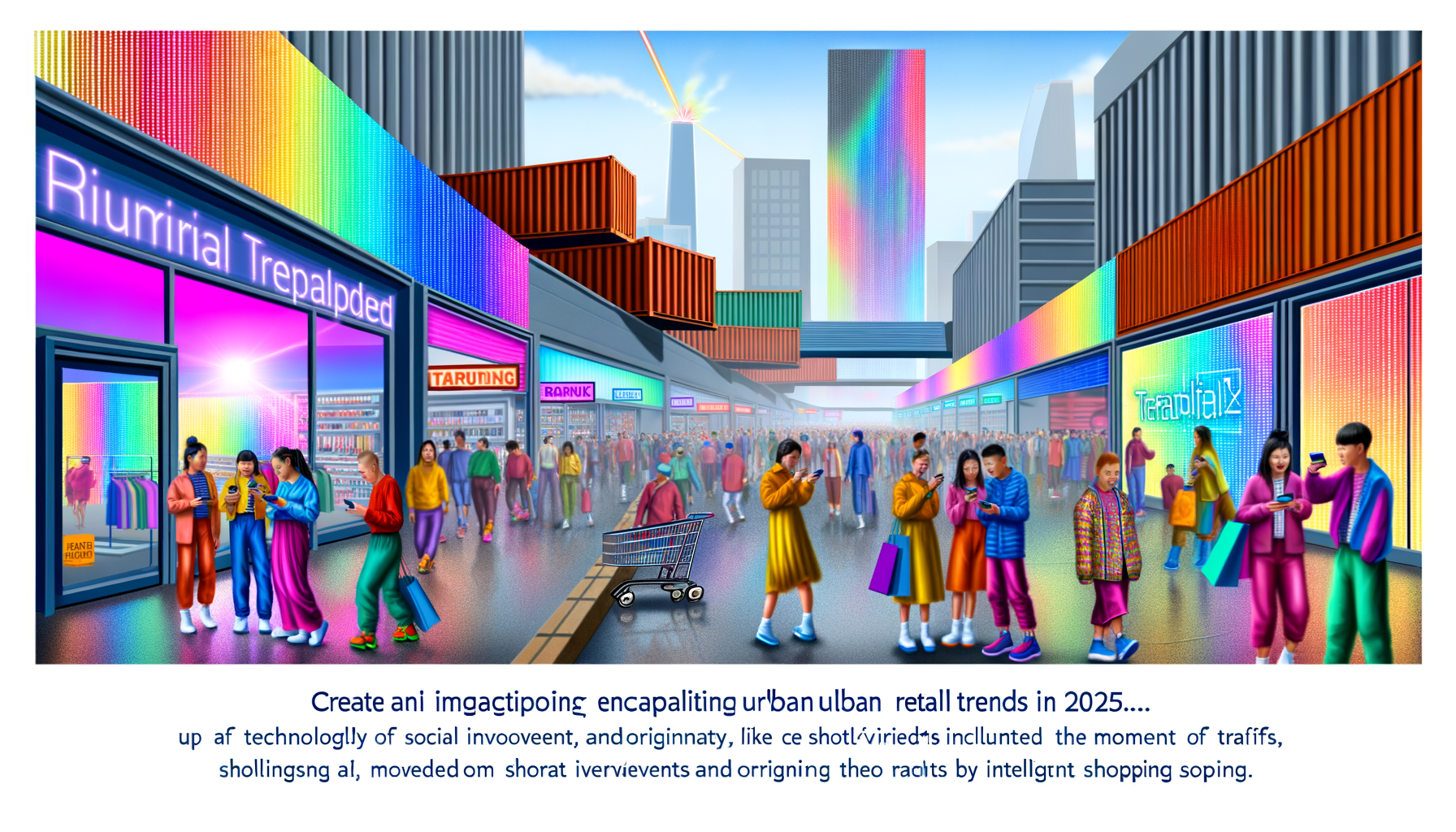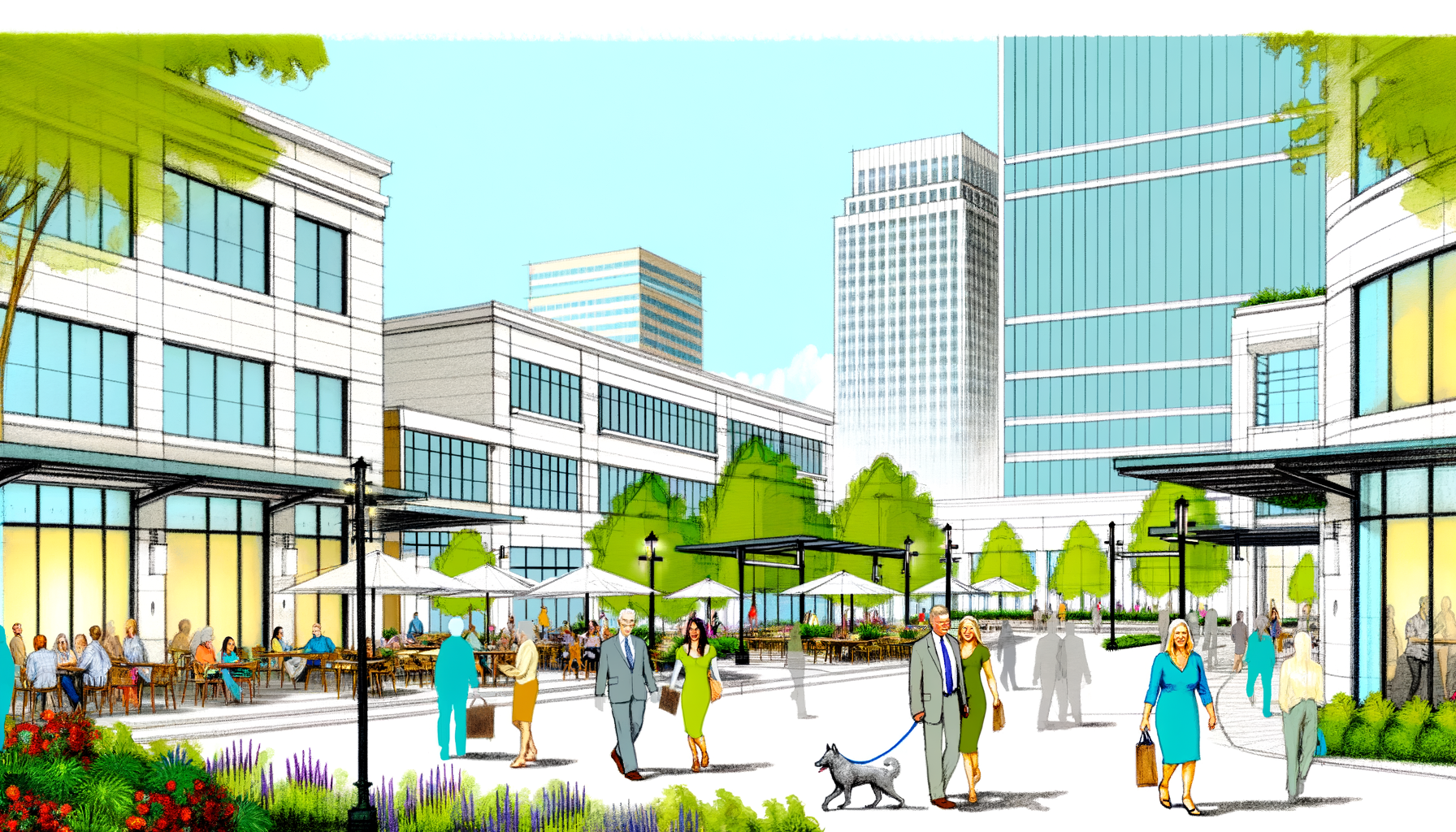Retail Trends 2025: Tariffs, TikTok, and AI Impact on Real Estate
The world of retail is continuously evolving, shaped by significant trends that not only reflect consumer preferences but also leverage technological advancements. As we approach 2025, experts predict a confluence of factors—tariffs, the rise of social media platforms like TikTok, and the proliferation of artificial intelligence (AI)—that will influence the retail landscape profoundly, including its impact on real estate. In her recent talk, industry leader Telsey remarked, “Data that they are accruing is only making them smarter.” With this in mind, let’s delve deeper into how these elements are transforming retail and real estate.
The Tariff Effect on Retail Prices
Tariffs have long been a contentious topic in the realm of retail. As governments impose taxes on imported goods, retailers are left to navigate the complex balance between maintaining reasonable prices and safeguarding their profit margins. The most pressing question is: how will tariffs affect consumer purchasing behavior and real estate development strategies in the coming years?
Rising tariffs tend to lead to increased prices for consumers. This inflation can force retailers to innovate their supply chains to absorb costs, seek domestic alternatives, or even explore direct-to-consumer models. As a result, brick-and-mortar stores may face significant pressure as consumers turn to online vendors for better pricing.
Moreover, as international trade agreements remain unstable, companies may consider relocating their distribution centers closer to their consumer bases, further impacting commercial real estate. Retailers are likely to seek out flexible spaces that can adapt to changing logistics, indicating a shift towards multi-use properties within urban environments.
The Rise of TikTok in Retail Marketing
The impact of social media on shopping habits cannot be overstated, and TikTok has emerged as a powerful force in retail marketing. With its short-form video content and viral trends, TikTok has the potential to drive massive sales spikes that can turn unknown brands into household names almost overnight.
One major trend is the collaboration between brands and influencers. Companies are increasingly leveraging TikTok creators to showcase their products in authentic, engaging ways. This shift indicates a move away from traditional advertising methods, aligning more closely with the preferences of younger consumers.
For retail spaces, this trend signifies a necessary adaptation. Stores will likely transform into experience-driven environments where consumers can interact with products in ways that align with mobile content. Think of pop-up shops that reflect current TikTok trends—these venues will attract foot traffic by delivering experiences that are both shareable and purchase-driven.
The Role of AI in Retail and Real Estate
Artificial intelligence is revolutionizing various sectors, with retail being no exception. AI technologies are enabling retailers to analyze customer data and improve their offerings, while also informing real estate decisions.
For instance, AI algorithms can predict customer preferences based on past behaviors, allowing retailers to tailor their stock and marketing strategies accordingly. This intelligence means smarter inventory management, less waste, and ultimately, increased sales. Furthermore, as retailers embrace data-driven decision-making, there will be a pressing need for physical spaces that can adapt quickly to their changing demands.
On the real estate front, AI can facilitate site selection by analyzing demographic data, foot traffic patterns, and competitive landscapes. Developers and investors can use technology to assess potential locations for new retail opportunities, effectively minimizing risks associated with location-based investments.
Integrating Trends into Real Estate Strategy
As we move toward 2025, real estate developers and property managers must keep a finger on the pulse of retail trends. The integration of AI-driven insights, adaptability to tariff changes, and the engagement strategies harnessed through platforms like TikTok will be vital for commercial success.
For developers, this means investing in mixed-use properties that combine retail, residential, and office spaces. Creating environments where consumers can shop, work, and play will drive foot traffic and stimulate local economies. Additionally, recognizing the importance of convenience—such as accessibility to public transport or proximity to urban centers—will be critical in catching the eye of retailers seeking space.
Conclusion: Future-Proofing Retail and Real Estate
As we gather insights from Telsey and other industry leaders, one key takeaway is the notion of future-proofing businesses against the shifting tides of retail. Understanding the nuanced effects of tariffs, capitalizing on social media platforms like TikTok, and embracing the transformative capabilities of AI is essential for success in 2025 and beyond.
In this dynamic landscape, real estate serves as both the stage and the supporting cast for the evolving retail drama. As consumer preferences shift and new technologies emerge, the interplay between retail and real estate will become increasingly pronounced. Retailers that harness data effectively, remain agile in their business models, and engage consumers through innovative channels will undoubtedly find themselves at the forefront of this ever-changing landscape.
The future of retail and real estate is bright, albeit demanding. By anticipating changes and adapting strategies accordingly, businesses can not only survive but thrive in a world being reshaped by external factors and technological advancements.



